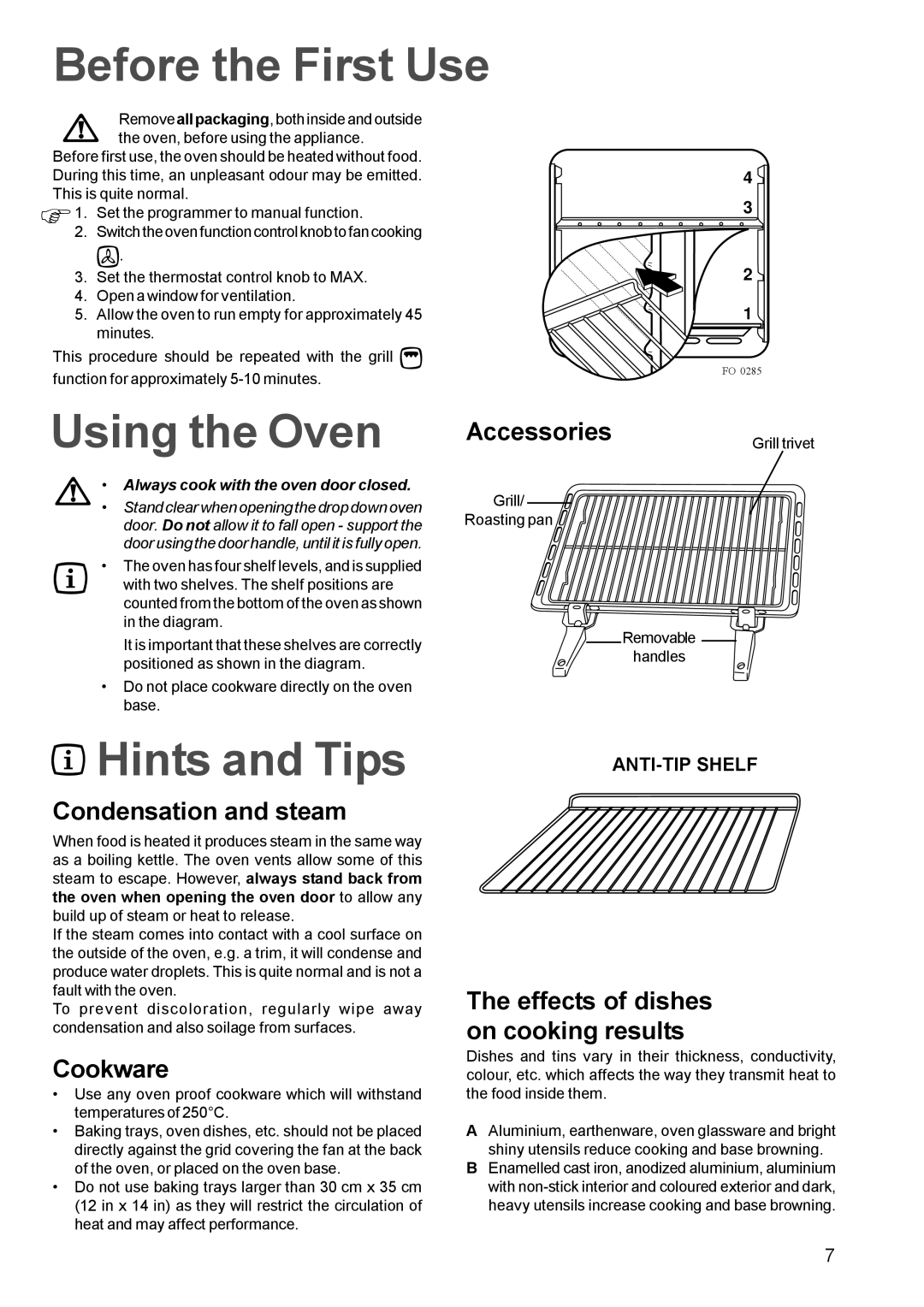
Before the First Use
Removeallpackaging, both inside and outside the oven, before using the appliance.
Before first use, the oven should be heated without food. During this time, an unpleasant odour may be emitted. This is quite normal.
Φ1. Set the programmer to manual function.
2.Switchtheovenfunctioncontrolknobtofancooking
![]() .
.
3.Set the thermostat control knob to MAX.
4.Open a window for ventilation.
5.Allow the oven to run empty for approximately 45 minutes.
This procedure should be repeated with the grill ![]() function for approximately
function for approximately
4
3
2
1
FO 0285
Using the Oven
•Always cook with the oven door closed.
• Stand clear when opening the drop down oven door. Do not allow it to fall open - support the door using the door handle, until it is fully open.
• The oven has four shelf levels, and is supplied with two shelves. The shelf positions are counted from the bottom of the oven as shown in the diagram.
It is important that these shelves are correctly positioned as shown in the diagram.
•Do not place cookware directly on the oven base.
Accessories | Grill trivet |
|
Grill/
Roasting pan
Removable
handles
 Hints and Tips
Hints and Tips
Condensation and steam
When food is heated it produces steam in the same way as a boiling kettle. The oven vents allow some of this steam to escape. However, always stand back from the oven when opening the oven door to allow any build up of steam or heat to release.
If the steam comes into contact with a cool surface on the outside of the oven, e.g. a trim, it will condense and produce water droplets. This is quite normal and is not a fault with the oven.
To prevent discoloration, regularly wipe away condensation and also soilage from surfaces.
Cookware
•Use any oven proof cookware which will withstand temperatures of 250°C.
•Baking trays, oven dishes, etc. should not be placed directly against the grid covering the fan at the back of the oven, or placed on the oven base.
•Do not use baking trays larger than 30 cm x 35 cm (12 in x 14 in) as they will restrict the circulation of heat and may affect performance.
The effects of dishes on cooking results
Dishes and tins vary in their thickness, conductivity, colour, etc. which affects the way they transmit heat to the food inside them.
AAluminium, earthenware, oven glassware and bright shiny utensils reduce cooking and base browning.
BEnamelled cast iron, anodized aluminium, aluminium with
7
